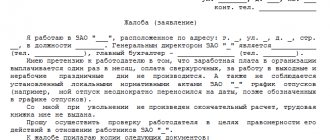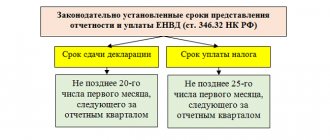Individual labor disputes are regulated by Article 392 of the Labor Code. Currently, this norm is subject to application taking into account the amendments made by Federal Law No. 272-FZ of July 3, 2016, which entered into force on October 3, 2020. Let's talk about them.
What labor disputes are considered in the courts?
The reasons for disputes between the company's management and its employees can be various events. Let's take a closer look at them.
Illegal dismissal
The rules of law establish the procedure for terminating an employment agreement. If there is a violation of its stages, or incorrect execution of the required documents, then the dismissal may be considered illegal.
A labor dispute over illegal dismissal arises when an employee of a company is fired by the company administration. The employee has the right to go to court.
The most common reasons for illegal dismissal are the unlawful imposition of a disciplinary sanction (in the form of dismissal) or failure to comply with the dismissal procedure at the initiative of the employer.
Non-compliance with the Labor Code of the Russian Federation
Relations between the company's employees and it as an employer are regulated by labor legislation, which must be complied with by each party to this relationship.
The employee can also file a claim in court to restore his rights. In practice, before taking such an issue to court, employees often try to resolve the issue with the labor inspectorate or through the prosecutor's office.
Fact
If these competent authorities do not resolve the dispute, the employee can then file a claim in court. Questions about the procedure for concluding and changing an employment contract, labor protection, work and rest regime, etc. are considered here.
Non-payment of wages
In accordance with the concluded labor agreement and local regulations of the enterprise, the employer must pay wages to its employees on time in certain amounts.
If payment deadlines are violated, the employer must accrue compensation payments in accordance with the rules. If the employer has not made the payments required by law, the employee will be able to receive them by filing a claim in court.
Damage to property
Employees carry out their work activities using company property. They are responsible for its safety in accordance with the contract or legal norms. If property is damaged or lost, the employer may go to court for compensation by the employee for the damage caused by the employee.
Failure to comply with benefits for certain categories of employees
Legislative acts provide for the existence of certain guarantees and compensation payments for certain categories of citizens during employment. If the rights of such workers are violated, they turn to the labor inspectorate or the prosecutor's office for protection.
Attention! In most cases, this issue is resolved with the employer at this stage. However, if the established payments are not made to the employee, you can go to court to resolve the issue of their payment.
Grounds for the start of the period for going to court
For the resolution of labor disputes, the basis on which the start of the period for presenting documents to the court is associated is of key importance. Such grounds for an employee of an enterprise include:
- in case of termination of employment relations - the day the employee receives a document on termination of the employment contract, or the day the employer issues a work book upon dismissal;
- in the event of a dispute arising during the validity period of the employment agreement, the moment when the employee learned or should have learned about the violation of his rights by the actions of the employer.
This is also important to know:
Liability for delayed payment of wages
For an employer, the only basis for bringing a conflict to court is compensation for property damage caused by the employee’s fault. In such a situation, the beginning of the period will be associated with the day the damage was discovered. For the purpose of determining the statute of limitations for filing a lawsuit, not only the special norms of the Labor Code of the Russian Federation will be important, but also Article 192 of the Civil Code of the Russian Federation, which establishes the rules for calculating the end of the procedural period.
Procedure for filing a claim in court
In 2020, all labor conflicts are considered in district (city) courts. The claim is sent to the court at the place:
- the defendant's stay;
- location of the defendant's branch;
- performance of labor duties.
When drawing up an application, it is necessary to be guided by the requirements of court records management. Along with the claim, a set of documents is submitted that will act as evidence of the applicant’s position.
If you have no experience in participating in such situations, it is recommended to seek advice from a lawyer, since the pre-trial procedure has many subtleties and nuances.
What are the deadlines for applying to a labor court?
The period for filing an application to the court for conflicts related to labor relations is established in Art. 392 of the Labor Code of the Russian Federation. This indicator is determined both by the status of the applicant (employer or employee) and the essence of the dispute.
Deadlines for an employee to apply
In paragraph 1 of Art. 392 of the Labor Code of the Russian Federation specifies that an employee has the right to file an application with the court in order to receive compensation for violated labor rights within three months from the date when he learned about the fact that legitimate interests were being ignored.
In the case of wrongful dismissal, a different deadline for filing is relevant. Under such circumstances, a citizen has only a month from the date of dismissal to file a claim in court. To be more specific, the countdown begins from the date of receipt of the relevant order or issuance of the work book.
The appeal period is increased to one calendar year if the dispute concerns non-payment of wages or other funds due to the employee.
Free legal consultation We will answer your question in 5 minutes!
Ask a Question
For employees, the statute of limitations is quite short, so many people unknowingly miss it. In this case, you can ensure compliance with your rights only by restoring lost time - this opportunity is available only if there are good reasons.
Free legal consultation
We will answer your question in 5 minutes!
Ask a Question
Deadlines for the employer
For the employer, the period is longer and amounts to one calendar year from the moment it was discovered that the employee caused damage to property. This statement applies to both employed persons and those already laid off.
Procedural nuances of limitation periods
According to Art. 392 of the Labor Code of the Russian Federation provides for the types of time limits for parties to apply for protection of their labor rights in court:
- 3 months for most categories of labor disputes, including establishing the fact of work;
- 1 month from the date of receipt of the dismissal order at work.
- in comparison with the above periods, it can be increased to 1 year from the date of non-payment of wages or its incomplete accrual.
Limitation periods are also provided for the employer. He has the right to file a claim in court to recover damages from the employee - within 1 year from the date of discovery of the fact of damage. In fact, a significant period of time may pass between the moment of violation of the right and the time the violation itself is discovered.
When accepting claims, the courts take into account the circumstances of a particular case, how actively the employee or employer tried to identify the fact of the offense, as well as further non-procedural actions that followed after the employer violated the labor rights of employees.
Missing the limitation period is qualified by the court as a basis for refusing to accept a statement of claim or satisfy the applicant’s demands already during the trial. The defendant has the right to file an application for dismissal of the claim indicating the fact that the statute of limitations has expired.
The court also has the right to accept the claim for consideration on its merits even after the limitation period has been missed. A formal approach to the situation is not allowed. The court must take into account the circumstances of a particular situation and may restore the deadlines at the request of the plaintiff.
Restoration of deadlines is possible only in the following cases:
- If the plaintiff did not have the opportunity to timely defend his rights in court - illness, being in a pre-trial detention center, or a long business trip. When applying to restore the statute of limitations, copies of documents confirming a valid reason for the statute of limitations must be attached to the application.
- If the applicant is misled by the employer, forged documents and orders are issued “retroactively.” Such offenses may be previously recorded by the labor inspectorate, and the employer may be brought to administrative liability - a fine, disqualification.
This is important to know: Statute of limitations for wage arrears
The employer must also take the deadlines into account. He has the right to file a claim against the employee even in cases where he has compensated for damage caused by employees to third parties.
For example, a bus driver got into an accident and caused damage to the victim’s vehicle. The employer pays for the damage if the insurance company cannot compensate it in full, and then files a recourse claim against the employee. Limitation periods are calculated taking into account calendar days and months.
The validity of the reason is also assessed by the court taking into account the specific situation. Not every illness can be regarded as a valid reason, or a situation related to the actual impossibility of going to court is not regarded by the court as a significant circumstance allowing the restoration of the statute of limitations. Refusal to restore the terms is also possible in the case when a prosecutor or representatives of the labor inspectorate appeal to protect the rights of employees. The omission itself allows the case not to be considered on its merits.
Collective labor disputes
When resolving disputes regarding labor relations where several parties are involved, Art. 392 of the Labor Code of the Russian Federation, which was relevant in the above cases. The features of the CS are:
- The starting point for the settlement of collective disputes is the date of its initiation - usually the day employees are notified of the rejection of their claims to ensure their own interests. The employer is given two days to consider the claim;
- initial attempts to resolve the conflict are made by a conciliation commission, which must be created within two to three days after the occurrence of the conflict;
- the commission must consider the dispute within three to five working days after issuing an order to form a PC with the involvement of a mediator;
- If an agreement cannot be reached, then a decision is made to transfer the conflict to labor arbitration.
This is also important to know:
The concept and types of disciplinary offenses
The terms of the conciliation procedure may be extended if there is agreement between the parties on this matter.
Options for jurisdiction of labor disputes
Most labor disputes are dealt with by the courts of general jurisdiction.
Salary collection
The employee has the right, fixed in the Labor Code, to receive remuneration for work in the amount and manner determined by the terms of the employment contract. If management violates this right, the person can file a lawsuit.
The jurisdiction of labor disputes regarding the collection of wages is assigned to district courts. You can take advantage of the opportunity to protect your interests in all matters related to payment violations: partial or complete non-payment of earnings, withholding of bonuses, non-payment of all due compensation upon dismissal.
An employee who believes that his dismissal was carried out in violation of labor law may go to court to be reinstated in his previous position. In some cases, the interests of the employee are represented by supervisory authorities.
In this case, the district court will also consider the claim for unfair dismissal.
In some cases, an employee who, through his guilty actions or inaction, caused damage to the company is obliged to compensate it. The damage caused may be more than the monthly salary of the culprit, and such a person is not always ready to voluntarily compensate for it. Or the employer himself missed the month deadline for issuing the relevant order. In this case, the company may go to court to oblige the culprit to pay damages. The plaintiff will have to file the application in the district court.
Differences in the jurisdiction and jurisdiction of labor disputes
Jurisdiction
Jurisdiction determines which court considers incoming labor disputes.
Typically, labor disputes are dealt with by regional bodies of general jurisdiction. Cases of this kind are not referred to arbitration courts. It is also very important to determine whether the case in question is a labor dispute or whether it does not fall into that category.
Jurisdiction of labor disputes according to the Code of Civil Procedure of the Russian Federation
Disputes between employees of enterprises and their management have always been and will be, therefore the issues of resolving labor disputes are most relevant at all times.
At the same time, they cannot always be resolved peacefully, therefore, the question arises of identifying the person who can resolve the current conflict situation.
Usually such a person or body becomes a court.
The institution of law known as jurisdiction allows you to determine which judicial body will consider a specific claim. If you do not know and understand its essence, it will be almost impossible to effectively protect your labor rights.
Like any legal institution, jurisdiction is regulated by a certain set of laws. They establish a list of cases that are considered by a particular court, the amount of the claim and damage caused, the location of the defendant and other criteria by which it is possible to determine which court will resolve a particular dispute.
Usually a decision on this issue is made on the basis of several laws, and not just one procedural code.
The basic rules for establishing jurisdiction in labor disputes are laid down in the Civil Procedure and Arbitration Procedure Codes, while the latter is not applied when resolving the described categories of disputes.
The APC can serve as a guide in this activity, but the main attention should be paid to Chapter 3, Article 23 of the Code of Civil Procedure of the Russian Federation, which are devoted to regulating the issue under consideration.
Ancestral
Modern law identifies tribal and territorial jurisdiction as the main ones. The first is practically not used when resolving disputes in courts between the employee and the owner of the enterprise. This is due to the essence of generic jurisdiction, which assigns court cases to the competence of a particular court based on their category.
If the subject of the dispute is not included in them, this authority has no right to deal with it. For example, until 2008, magistrates resolved the types of disputes of all categories under consideration. Currently, they are deprived of such a right, and powers in this area have been transferred to district courts of general jurisdiction.
In addition, similar claims for other payments in favor of the employee are within their competence. This is an almost exhaustive list of cases of application of the type of jurisdiction under consideration. All other disputes are resolved by using its territorial version.
Territorial
The rules of territorial jurisdiction are established by Article 28 of the Code of Civil Procedure of the Russian Federation, which means the assignment of certain categories of cases to the competence of courts on a territorial basis. Thus, the type of dispute under study can be considered in place:
- location or residence of the defendant, his representative office or branch;
- execution of the concluded employment contract with the employee.
In most cases, employees sue the employer at his location or residence. They mean the address that the legal entity declared during its registration.
If the defendant is an individual entrepreneur, the claim is filed at his place of residence, that is, registration (registration). It does not matter to the court that he may not live there, since all correspondence will be conducted precisely at these addresses.
Sometimes it happens that it is not known where the organization or individual with whom the employee will sue is located. This can happen for various reasons, including due to dishonest behavior of the defendant. Such actions can significantly complicate the course of legal proceedings.
This is also important to know:
Benefits for pregnant women at work according to the labor code
If the plaintiff does not know, he will have to find the location of his real estate.
This option is the most preferable, as it allows you not to waste time searching for an unscrupulous person, but to immediately protect the employee’s rights violated by him.
If an organization has a branch or divisions, an employee who worked there can go to court at their address.
Time and money are saved, in addition, the citizen thus has the opportunity to present evidence of his innocence directly at the place of his former work.
There are also situations in which an employee has to go to court over several related disputes. For example, an employee may be hired by one organization, but actually work on the territory of another.
In this case, he has every right to contact either one employer, at the employee’s choice, or two at once. This provision is established by Part 1 of Art. 131 Code of Civil Procedure of the Russian Federation.
There are cases when, having concluded an employment contract, a citizen does not work for the person with whom it was signed. Typically, this is done by including a clause in the contract that specifies the place of performance. This is why you will need to go to court in the event of a dispute.
Many unscrupulous employers do not know this fact, so they build very clever schemes to deceive their employees. If you use such jurisdiction, you can effectively protect yourself from the machinations of fraudsters who do not want to pay wages honestly.
You can take into account the presence of branches and representative offices and contact their address. In addition, nothing prevents you from doing this at the place of execution of the employment contract. The plaintiff himself decides what is most convenient for him to do in this case, although it would be best to consult an experienced lawyer on this matter.
In the event that an employer unreasonably refuses to hire an employee in accordance with Art. 391 of the Labor Code of the Russian Federation, the case is considered by the city (district) court.
Thus, the plaintiff will need to apply to the court at the location of the defendant.
You can also contact the location of the branch or representative office in the case where the person applied for a job there.
According to the general rules, disputes when transferring an employee to another position are also considered. There are no special features here; usually, to successfully resolve the issue, it is enough to know where the employer or its branch, as well as its representative office, is located.
By the way, in this case, the claim can be filed when the citizen continues to work. This is what distinguishes it from other varieties of the type of litigation under consideration.
You can also request that the necessary entry be made in the work book through the court at the location of the branch or representative office. In this case, other options for filing a claim are not provided, since it is difficult to identify in any other way the person obligated to make such a record.
If the employee is not satisfied with the decision of the labor dispute commission or the case falls into the categories listed in Art. 391 of the Labor Code of the Russian Federation, he has the right to appeal directly to the city (district) court.
Free legal consultation We will answer your question in 5 minutes!
Call: 8 800 511-39-66
In this case, other bodies and authorities do not have the right to consider the issue on its merits. All employees should remember this and not follow the lead of representatives of the enterprise management, who may claim that employees cannot go to court directly.
Free legal consultation
We will answer your question in 5 minutes!
Ask a Question
Claims brought in connection with labor relations are sent to district (city) courts. Typically, such a court is located at the location or residence of the defendant employer. Also, their features, in addition to the place of presentation, include their freeness for the plaintiff, since on the basis of Art. 80 of the Code of Civil Procedure of the Russian Federation, no duty is paid in such cases.
The employee has three months to apply for protection of the rights violated by the employer. If the deadline is missed, it can be restored for good reason, again through the court. In the same case, when the employer caused material damage to an employee of the enterprise, you can go to court a year after the incident.
Typically, disputes on issues regulated by the Labor Code of the Russian Federation are considered within two months, with 10 days allotted for appealing decisions. Separately, it is worth noting that such types of jurisdiction as alternative, contractual and exclusive do not apply to them.
It is worth remembering that there is also jurisdiction, which differs from the institution under consideration in that it allows various categories of cases to be classified under the jurisdiction of arbitration and courts of general jurisdiction. Jurisdiction does this within one court system. Incorrect determination of the first and second may lead to negative consequences for the plaintiff.
Types of jurisdiction
Territorial
At the place of residence of the plaintiff
Territorial jurisdiction in general situations determines that an application for a labor dispute against an individual must be filed at his place of residence.
In this case, the place of residence is recognized as the place in which his things are located and which he considers home.
Attention! Usually the court determines this jurisdiction by the registration stamp in the passport. However, if evidence is provided, the court may consider the application at another address.
At the location of the defendant
In Art. 28 of the Code of Civil Procedure of the Russian Federation states that a claim can be filed against an organization at its location. In relation to companies, such place is recognized as its legal address, which is indicated in the constituent documents. To find out, you need to obtain an extract from the state register of the Unified State Register of Legal Entities.
When the location of the defendant is not established
The claim can be filed at any address if the place of residence is unknown. However, it is then necessary to file a petition to locate the location of the defendant or his property.
In such situations, the court redirects the request to the FMS. However, this may not work in the case where only the first and last name is known about the defendant, and there is no way to find the person in question from the entire database.
The defendant is located abroad of the Russian Federation
In Art. 402 of the Code of Civil Procedure of the Russian Federation states that the court hears a dispute in a situation where an individual or organization is located within Russia. In other situations, it is necessary to file a claim at their place of residence or location.
At the address of the branch or representative office
Clause 2 of Article 29 of the Code of Civil Procedure of the Russian Federation states that an employee has the right to file a claim against an organization not only at the address of the parent organization, but also at the address of the branch or representative office.
In this case, it is necessary to file only one claim - either at the location of the parent organization or at the location of the branch.
At the address of execution of the employment agreement
Clause 9 of Article 29 of the Code of Civil Procedure of the Russian Federation establishes that if the employment agreement specifies the place of its execution, then the claim can be filed at this address. However, in this case, this may conflict if the agreement also specifies contractual jurisdiction. The latter fixes the place of dispute resolution.
Attention! Court proceedings indicate that in this situation the court gives preference to considering the case at the place of execution, since a direct indication of the place of proceedings may infringe and limit the rights of the employee.
Which court to file a claim in?
An employee who has a conflict with a legal entity applies to the district court at the location of the defendant, which is defined as the legal address of the enterprise. If the employer is an entrepreneur, the labor dispute will be considered by the district court at the defendant’s place of residence. The dispute over reinstatement is under the jurisdiction of the district court located at the location of the main enterprise or other division, if the person worked there before dismissal.
This is also important to know:
What is the telephone number of the Moscow labor inspection hotline
If there are options to choose between several courts, each of which has the right to consider the case, since the jurisdiction and jurisdiction of labor disputes allows this, the plaintiff himself determines where to go.
It should be remembered that consideration of a claim that ends up in the wrong court will be denied. And also that arbitration courts do not consider claims in labor disputes, with one exception - if several employees simultaneously have different claims against the employer, and they decide to file a class action. Collective claims cannot be considered by a court of general jurisdiction, so such applications should be sent to labor arbitration.
Features of resolving disputes individually and from a team
Labor disputes within an enterprise can be either individual or collective. If the parties to the dispute are only the employee and the administration of the company, then such a dispute is considered individual and is referred to a body of general jurisdiction.
If a group of workers simultaneously brings a claim against the administration, then such a dispute will be a collective one, and it should be resolved by a labor dispute commission (LCC).
Attention! It must be assembled at the enterprise. The civil service for resolving collective labor disputes may be involved in resolving the dispute.
What to do if the defendant’s place of residence is unknown
Article 20 of the Civil Code of the Russian Federation defines the place of residence as the place where a person lives permanently or most of all, where he is registered and lives as an owner, tenant, or tenant. But it is not always possible to find out the place of residence or it may not exist at all. In this case, the claim must be filed at the last known place of residence of the defendant or at the location of the property.
If the residential address is unknown and the plaintiff cannot indicate it in the application, the court may itself begin searching for the defendant if the case is being considered on:
- protecting the interests of public entities;
- collection of alimony;
- compensation for harm resulting from injury;
- death of the breadwinner.
In other cases, it is necessary to involve law enforcement agencies to find out the current address of the defendant.
Alternative
This jurisdiction assumes that the plaintiff has several options for filing a claim. However, in this situation he must choose only one court.
You cannot submit an application to two courts at once. An example of such a situation could be a claim by an employee who can file it either at his residence address or at the employer’s location.
Alternative jurisdiction also arises in a situation where a labor dispute arises in relation to a branch of the organization. By law, a claim can be filed either at the address of the parent company or at the location of a branch or representative office.
Exceptional
Article 30 of the Code of Civil Procedure of the Russian Federation states that cases of exclusive jurisdiction. In accordance with this provision, certain cases may be heard in certain courts, provided that this is established by law. For example, in order to lift the seizure of property, you need to go to the court at the location of the property.
If the cases under consideration are related, they should be considered jointly in one court. For example, if management sues several of its employees, it has the right to choose any court at the place of residence of one of the defendants.
Attention! This rule applies to the situation when a counterclaim is filed. It must be sent to the court where the original one is being considered.
Negotiable
Contractual jurisdiction of labor disputes is determined on the basis of joint agreement by the parties.
That is, the company’s management and the employee agree that the case will be considered either at the employee’s residence address or at the location of the organization. It is important to take into account the opinion of the Supreme Court, which prohibited limiting the employee’s right to choose the place to file a claim.
Since some employers, in the employment contract signed with the employee, include a clause on the place of consideration of the labor dispute, which may worsen the employee’s situation.
Ancestral
Such jurisdiction establishes which cases can be considered by justices of the peace, district courts, courts of constituent entities of the federation, and the Supreme Court.
Most controversial issues in labor disputes fall within the competence of district courts. Magistrates only consider issues of payment of undisputed debts of the employer to the employee, including settlement amounts that are not paid on time.
Consequences of failure to timely apply to a judicial authority
What is noteworthy is that the court cannot refuse to accept the claim and documents even if the period for appeal has expired, and the essence of the application is:
- appealing the decision of the CCC;
- challenging the actions of an employer that violates the rights of an employee;
- compensation for property damage caused to the enterprise;
- recognition of an unlawful reason for refusing to employ an applicant;
- discrimination of employee rights and interests;
- unjustified dismissal with subsequent reinstatement with recovery of amounts for forced absence.
Proceedings on the above-mentioned applications occur only if none of the parties to the conflict declares that the deadline for appeal has expired. But still, one should not hope that the employer will ignore the fact that the limitation period has expired if the citizen went to court two months after dismissal with a demand to recover compensation payments and reinstatement.
If one of the participants files a motion to miss the deadline, the second will have to provide the court with documentary evidence of the existence of valid circumstances for non-compliance with the procedural order. It is possible to make a corresponding statement both orally and in writing. Further development of the case depends on whether the court accepts the received grounds as sufficient.
Innovations in 2020: features of case consideration
At the end of November 2020, the President of the Russian Federation signed Federal Law No. 451-FZ. The document makes adjustments to the existing legal regulations, including the Civil Procedure Code of Russia (Article 10 of Federal Law No. 451). Chapter 3 has been amended, but the amendments have not yet entered into force. This event is associated with the work of new cassation and appeal courts. The latter are provided for in Art. 21 of the previously mentioned law. The courts will review previously made decisions on labor disputes related to state secrets.
It is worth noting that the adopted federal law does not in any way affect the provisions of Articles 23-27 and, thus, does not change the jurisdiction of the cases under consideration. Thus, there were no adjustments to legislation aimed at resolving labor conflicts between employers and employees considered by courts of general jurisdiction.
After the amendments come into force, the procedure for citizens’ applications will change. Now the plaintiff will have to submit documentation at the legal address of the organization, and not at its location. Similar adjustments have been made to the articles on alternative and exclusive jurisdiction and on the connection of cases.
Article 33 of the Code of Civil Procedure, which regulates the transfer of a claim to another instance, will change taking into account the following additions:
- The current rules require the consideration of disputes by authorized bodies up to the adoption of appropriate decisions when factors appear that change the jurisdiction of the case. The latest adjustments will lead to the fact that the court will be obliged to transfer documents according to jurisdiction (the Supreme Court of the constituent entities and the Supreme Court of the Russian Federation);
- clarification when challenging judges. Cassation bodies of general jurisdiction redirect cases to other authorities. In case of withdrawal from new vessels, the transfer of documentation is handled by the RF Armed Forces.
In addition to the above innovations, the Code of Civil Procedure is supplemented by Art. 33.1. According to this article, a conflict with petitions in various branches of law (civil, administrative), if it is impossible to separate them, is considered in one proceeding. The authority carries out activities according to the rules of civil proceedings. If the plaintiff violated jurisdiction when submitting papers for consideration, then the application may be returned in that part that is not within the jurisdiction of the authority.
From judicial practice
Unscrupulous employers, unwilling to provide payments and benefits, may infringe on the rights of pregnant women. One of them filed a claim in court demanding reinstatement to her previous position, recovery of average earnings for the period of forced absence for health reasons, as well as compensation for moral damage.
This is also important to know:
Dismissal of an employee for absenteeism
The reason for going to court was the termination of the employment contract, while the employer was informed about the employee’s situation.
After the dismissal, the plaintiff submitted an application to the employer for reinstatement at work, attaching a certificate of pregnancy, but, nevertheless, received a refusal to cancel the dismissal order. The reason for the refusal was the employer's doubt about the authenticity of the medical certificate.
The court of first instance refused to satisfy the woman's claims, based on the fact that the established Art. 392 of the Labor Code of the Russian Federation, the deadline for filing a claim in court for reinstatement at work. But the woman challenged the decision of the trial court on appeal. In a higher court, she pointed out that termination of an employment contract at the initiative of an employer with a pregnant woman is not allowed, except in cases of liquidation of the organization or termination of activities by an individual entrepreneur. At the same time, the employer’s lack of information about her pregnancy is not a basis for refusing the claim.
The deadline for filing a claim in court was missed for a good reason, since while she was expecting a child, she was observed in a medical organization at her place of residence in another region. In this regard, the dismissal cannot be considered legal and justified. The higher court found her arguments justified and overturned the decision of the first instance. In favor of the plaintiff, wages for the period of forced absence were recovered, as well as moral damages totaling more than 860 thousand rubles.
Additional questions
Where to go is useless
When filing a claim, it is necessary to comply with the jurisdiction of the case. Thus, a judge may not accept a case for consideration if it is not within the jurisdiction of this court. And for the plaintiff, this will entail a loss of time and a possible missed statute of limitations. It will not be reinstated if the application was originally filed in a court of the wrong jurisdiction.
Attention! Separately, I would like to note that it is pointless to file claims for violation of labor rights with the European Court of Human Rights. This authority takes on only those cases in which the rights established by the International Convention for the Protection of Human Rights are violated. Therefore, the case of non-payment or delay of wages will not be considered by this court.
How issues of jurisdiction and jurisdiction of labor disputes are resolved
Jurisdiction and jurisdiction of labor disputes are determined on the basis of the provisions of the Labor Code of the Russian Federation and the Code of Civil Procedure of the Russian Federation. Each party to the lawsuit must be guided primarily by them when determining the procedure and rules for filing a statement of claim.
The general procedure is regulated by the Resolution of the Plenum of the Supreme Court of the Russian Federation “On the application by the courts of the Russian Federation of the Labor Code of the Russian Federation.” Judicial practice uses, first of all, the conclusions and concepts of this particular document. In particular, the circumstances of jurisdiction and jurisdiction are also determined in this order.
How to restore a missed deadline
The law establishes that if the limitation period has been missed for a good reason, the court can restore (increase) it. However, a complete closed list of them has not been recorded. Certain reasons were determined by the resolution of the plenum of the Supreme Court of the Russian Federation.
In particular, the following points were included in the valid reasons:
- Illness, being treated in a day hospital;
- Being on a business trip;
- Continuous care for a sick relative;
- Various irresistible natural forces (hurricane, flood, snowfall, etc.);
- Other reasons for which the applicant can prove that they became insurmountable at that moment.
Attention! Court practice shows that even these reasons are not always accepted as valid. For example, if the employee was sick at that moment, he must prove that the nature of the treatment prohibited him from getting up and going to the post office to send a statement of claim.
If the employee was on a business trip, then in this case it is necessary to prove that there were no mailboxes nearby into which he could throw a letter with an application, etc.
How to restore the expired period
If there was a delay in contacting the authorized structures for labor disputes, the plaintiff can take advantage of the option of restoring the statute of limitations - for this you will need to send a corresponding petition indicating a valid reason. The list of permissible grounds has not been approved by law, so the court independently determines whether impeding circumstances can be used as sufficient to restore the expired period. At the same time, there is a specific definition of reasons of this kind, which is reflected in paragraph 5 of the Resolution of the Plenum of the Armed Forces of the Russian Federation No. 2 of 2004. There are also a number of examples:
serious illness or hospitalization - as evidence you will need to present a sick leave certificate or an extract from a medical institution;
being on a business trip - you will need a travel document or other documents confirming the plaintiff’s stay in another city for work;
caring for a seriously ill relative.
An individual approach allows for greater fairness, but the degree of correctness of the decision largely depends on the competence of the judge.








